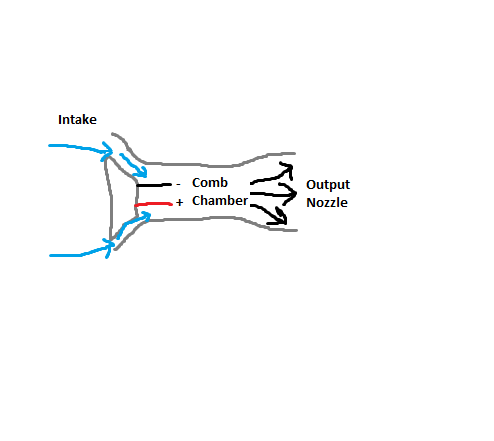Would it be possible to create a submersible boat engine using the combined principles of electrolysis of water, ramjet propulsion, and hydrogen-oxygen combustion similar to that used in rocket engines?
For example, the engine structure would be similar to that of a ramjet with a small intake opening in the front that lets in water and a wide bell shaped nozzle at the back where the explosive force would be expelled. In the middle of the chamber there would be two wires protruding with one being for positive voltage and the other being ground. The voltage between the two wires would be kept consistently high enough to trigger the electrolysis and there would be periodic voltage spikes (KV range) to create an arc to trigger combustion of the hydrogen and oxygen.
 I would think the advantage of this propulsion system would be a lack of moving parts that require waterproofing such as standard propellers and rotary motors. So would this be a feasible method of propulsion or am I missing something? My background is primarily electrical so I could be missing a critical chemistry/mechanical component of the process.
I would think the advantage of this propulsion system would be a lack of moving parts that require waterproofing such as standard propellers and rotary motors. So would this be a feasible method of propulsion or am I missing something? My background is primarily electrical so I could be missing a critical chemistry/mechanical component of the process.
